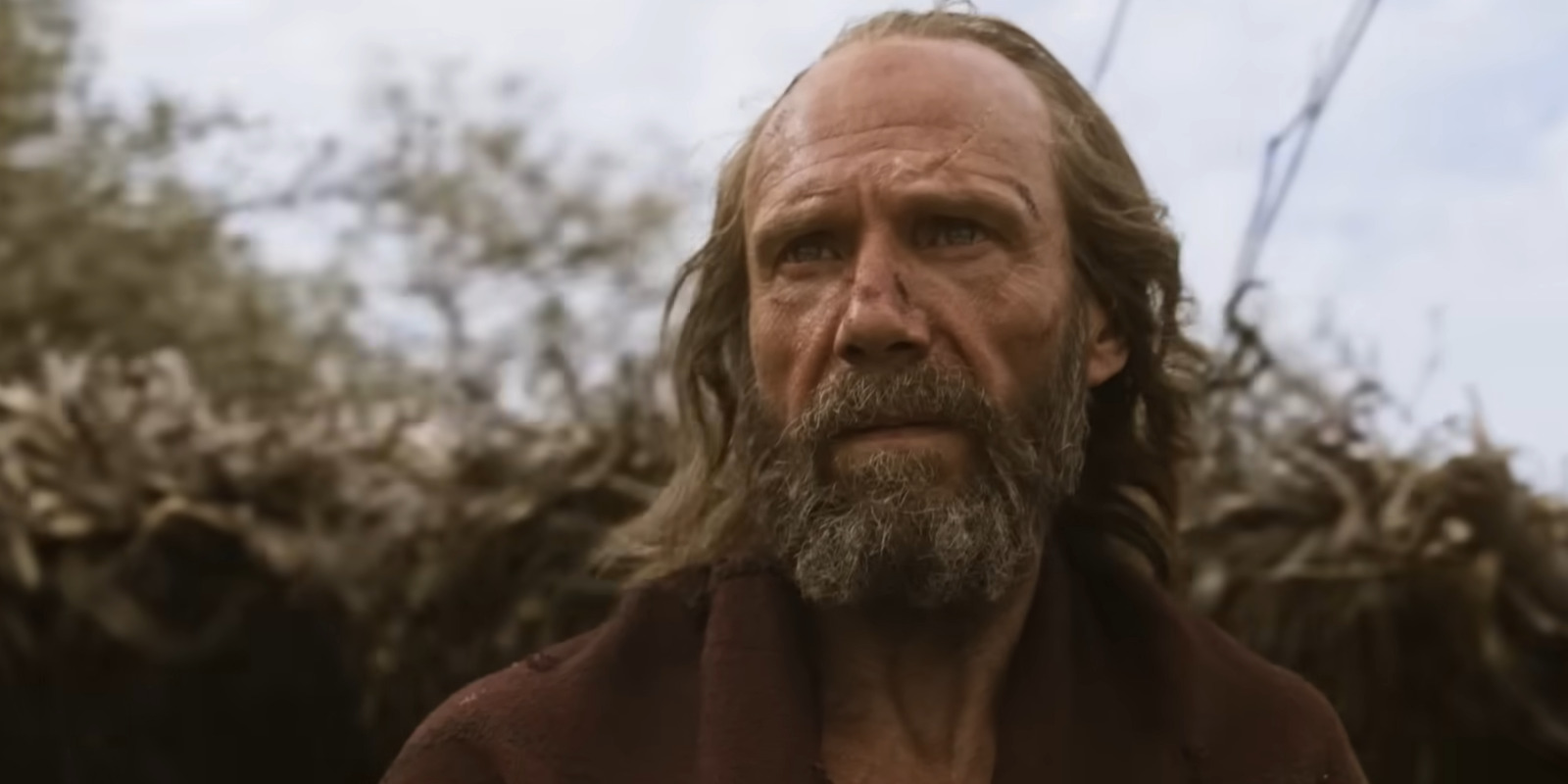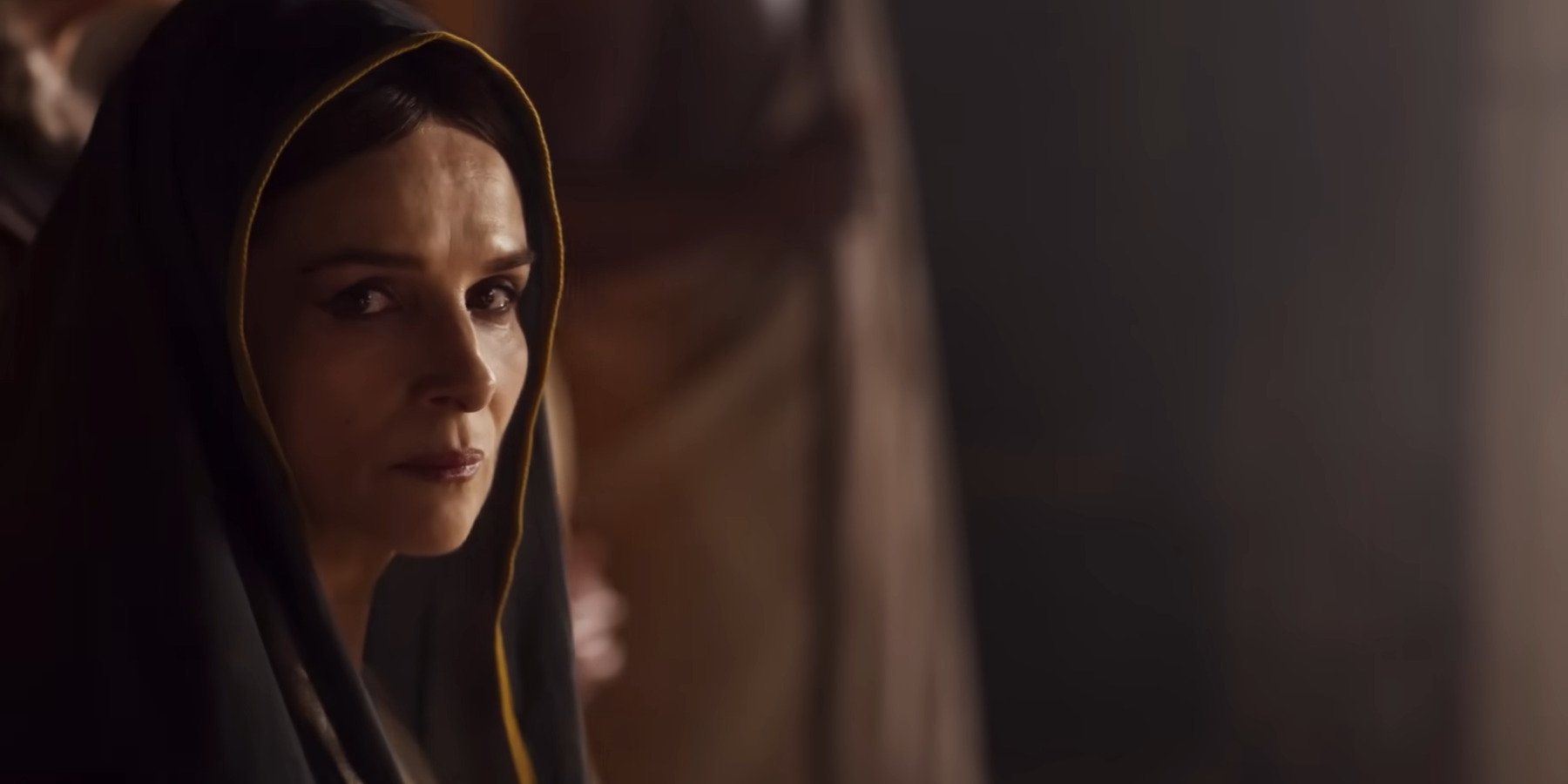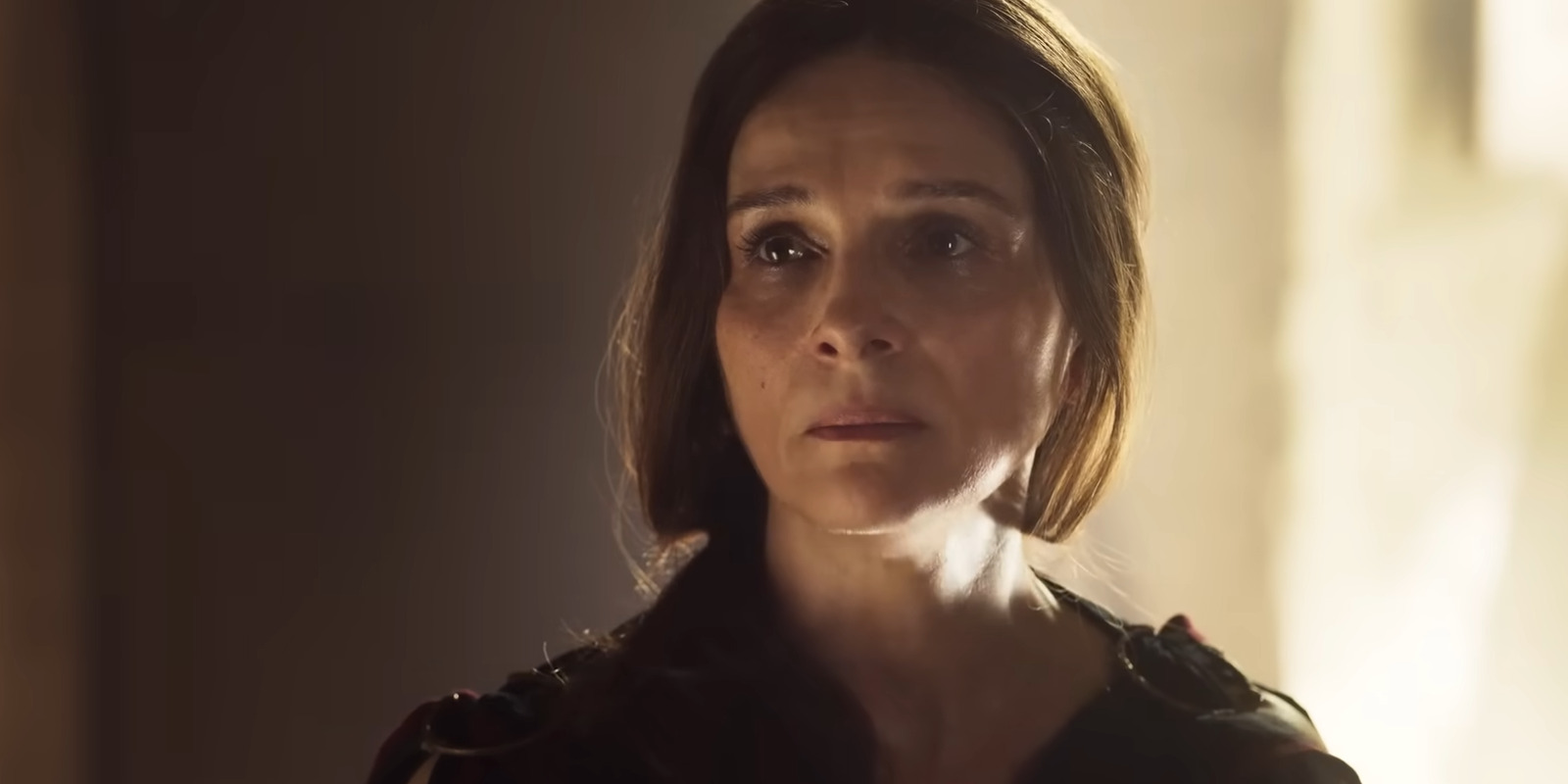Uberto Pasolini’s epic drama film ‘The Return’ is a psychologically captivating tale about a soldier who returns home to his family after an extraordinarily transformative journey. Odysseus, the king of Ithaca, left home with his men to fight in the war against Troy twenty years ago. After two decades of horrifying adventures, he returns to his homeland, where his wife, Penelope, and son, Telemachus, are trapped in a silent battle against suitors vying for the throne. As a result, the older, war-torn king must find the courage of his old self again in order to save his family and win back their affection.
The film presents a timeless narrative about the harrowing aftermath of war and how it alters every life that it touches—from soldiers to their families who await their homecoming. Consequently, despite the historical details surrounding Odysseus, his character allows space for a universal understanding. Naturally, the origins of his on-screen legend possess intriguing origins.
The Return Adapts a Part of Homer’s Odyssey
‘The Return’ is based on Homer’s epic poem ‘The Odyssey,’ in which the ancient Greek poet chronicles the titular hero’s journey from Troy to Ithaca. The 10-year-long voyage brings an onslaught of dangerous misadventures involving the wrath of a sea God, a witch-goddess, and a variety of monstrous foes. At the end of his adventures, Homer’s Odysseus returns home, where another great battle awaits the man who must reclaim his past life by slaying an army of his wife’s suitors. Uberto Pasolini’s adaptation of the epic focuses on the concluding segment of the original, chronicling a story about a soldier’s fraught reunion with his past life.

Pasolini has been a fan of Homeric epics since early childhood when his parents introduced him to the tales of Greek mythology. Consequently, he retains a deep appreciation and respect for the poet’s work. Initially, the filmmaker began working on the script for the project almost three decades ago with fellow screenwriter John Collee. From the get-go, Pasolini knew he wanted to focus on a specific part of Odysseus’ story, particularly his return to his home, Ithaca. The filmmaker was fascinated with the psychology behind his character’s emotional journey to acceptance of war’s aftermath and its life-altering changes.
Likewise, Pasolini and his collaborators, Collee—and later, Edward Bond, who also joined the screenwriting efforts on the project—wanted to highlight the strife of Penelope and Telemachus. In her husband’s prolonged absence, the Ithacan queen’s story of cunning wait and her son’s extended frustrations add a level to the relatable dynamic of Odysseus’ predicament. For the same reason, Pasolini saw a humane connection with the family and wanted to bring their stories to the screen. Still, despite the director/writer’s admiration of the source material, he always knew he wanted to establish certain changes from the original in his adaptation.
The Return Focuses on the Psychology of a War-Weary Soldier’s Homecoming
Even though ‘The Return’ has its basis in the ‘Odyssey,’ the film departs significantly from the Homeric tale in one notable aspect. Uberto Pasolini’s adaptation forgoes all the mystical or fantastical parts of Odysseus’ narrative. As a result, it shies away from any mentions of sea monsters or godly intervention in mortal affairs. Instead, the filmmaker and his creative team treat the Ithacan king’s story as an entirely mundane record grounded in its historical elements. While this results in an interpretation of the legend that diverges from tradition, it also enhances the realism behind the tale.

“To me, it was important to keep the focus on storytelling about the human emotions, the psychology of the humans, the difficulty of being human, the difficulty of being a good human,” Pasolini told TheWrap in a conversation about his decision to keep the film devoid of Gods and monsters. “(And) That would have been difficult if every action, or most actions, of our characters, were influenced or managed by the gods, as Homer has it in his poem.” The employment of this storytelling path translates into a direct writing-off of intriguing characters, with Goddess Athena as the most notable of the bunch. On the other hand, it also opens up room for creative liberties with certain characters and their storylines. Antinous’ on-screen depiction remains the most prominent example of the same.
Even so, such divergences ultimately ensure that the bulk of the narrative focus remains on the complications of Odysseus’ reunion with his family. As a result, the on-screen narrative remains entirely dedicated to unraveling the nuanced psychologies behind the less obvious ways that many fall victim to war’s terror. Through his portrayal of Odysseus, Penelope, and Telemachus, the filmmaker provides a peculiar look into the way years of violence ravages multiple familial relationships. Consequently, Pasolini engages with the renowned Homeric poem in a refreshing manner, exploring a humane aspect of ‘The Odyssey.’
Read More: Best Historical Movies on Netflix


You must be logged in to post a comment.